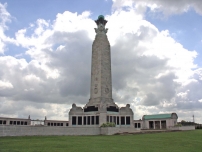| First Name: | Charles Robert | Last Name: | MOTT | |
|---|---|---|---|---|
| Date of Death: | 01/05/1915 | Lived/Born In: | Millwall | |
| Rank: | Private | Unit: | Royal Naval Division Chatham Battalion | |
| Memorial Site: | Chatham Naval Memorial | |||
Current Information:Age-19 148, West Ferry Road, Millwall
Gallipoli 1915 On 25 April, 1915, British, Australian and New Zealand forces landed on the Gallipoli peninsula. The plan was that these forces would soon defeat a demoralised Turkish army, knock Turkey out of the war, open up the Mediterranean to the Russian navy and threaten Austro-Hungary from the south.None of these things were achieved despite nine months of hard fighting in terrible conditions. It was a heroic failure. The 29th Division and the Royal Naval Division landed at five separate beaches around Cape Helles. Some were not defended, others were fiercely contested. Some ground was gained but within days the familiar pattern of trench warfare had set in. A similar pattern emerged further north where the ANZACS landed. The Turkish soldiers were much tougher fighters than had been given credit for and they were of course fighting an invasion of their homeland. The terrain, a series of steep rocky ridges and deep gullies made the fighting much more difficult and during the hot summer of 1915, the flies arrived in biblical proportions. Another seven British divisions were sent to Gallipoli during the summer but little or no progress was made. In the end, a new Commander was appointed and plans to evacuate the entire force were drawn up. By January 1916, all British, Australian and New Zealand forces had left Gallipoli, leaving only behind the dead, over 56,000 of them. During the night of 28th-29th April, the extent of the exhaustion of the Australian and New Zealand troops at ANZAC Cove, after four days and nights of continuous fighting, became obvious so four battalions of the Royal Naval Division were sent there to take some of the burden. These were the Portsmouth, Chatham, Deal and Nelson battalions and they were put straight into the line. General Birdwood, the commander of the ANZAC forces described the marines as, “children under untrained officers”. Whether or not this was the case they found themselves facing the Turks and had to learn on the job. As yet there is no further information on the events of 1st May, 1915 that led to the death of Charles Mott but there is a strong likelihood that it was sniper fire.
|
||||
| « Back to Search Results | ||||
| If you think any of the information shown here is incorrect, Click Here to submit your amends and comments | ||||




